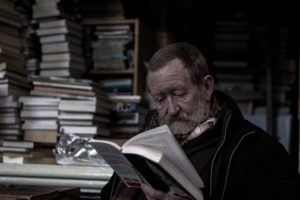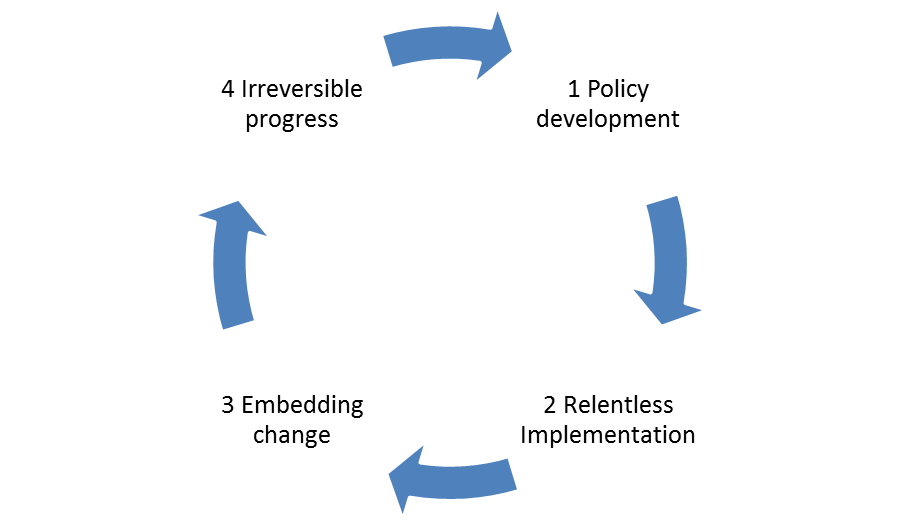Main Menu
Latest Blog Entry
User login
Top 5 books of 2019

Looking for some books to give as gifts for Christmas? Here are my Top 5 books of 2019, plus a simple reflection of the rest that I have read.
Sports coaches and p.e. teachers are often quick to jump on the latest book that is doing the rounds. Many of these are over-hyped and do not stand up to long term scrutiny. It is also often the only book that someone has read.
Over the last 6 years I have read 474 books. Thanks as always to Mandi Abrahams of Castle Books, Beaumaris and to the staff of the Hayridge Library for their help and suggestions.
Reading broadly gives me a sense of perspective. The following five are good ones.
In no particular order…
- Instead of Education: John Holt.
Excellent thoughts on how people can learn outside of a competitive education system. Written in 1976, thought provoking and relevant.
“Education, with its supporting system of compulsory and competitive schooling, all its carrots and sticks, its grades, diplomas and credentials, now seems to me perhaps the most authoritarian and dangerous of all the social inventions of mankind.
2. How to Run a Government: Michael Barber.
Superb book with excellent examples and guidelines throughout. Useful for every manager or leader of an organisation that wants to get things done. No politics, just practical ideas and processes.
Here is Barber on implementation,
“The widely held view that the way to bring about change is to ‘win hearts and minds’ and then proceed is largely a myth. In fact, the reverse is true; you need to proceed, and if you do so well- a very big and important ‘if’- hearts and minds will follow.”

3. Letters of T.E. Lawrence: David Garnett (Ed.).
Hard to describe how inspirational and revealing these letters were for me. Addressed to Siegfried Sassoon, E.M. Forster, Robert Graves and many others, it shows how Lawrence/ Shaw enjoyed his life in the RAF as a mechanic working as part of a team. It showed how he hated the limelight, and was poor, not wanting to ‘make money form the war’ and have his royalties from ‘7 Pillars of Wisdom‘ to charity.
“Do make it clear that generalship, at least in my case, came of understanding, of hard study and brain-work and concentration. Had it come easy to me I should not have done it so well.”
4. The Peckham Experiment: I.H. Pearse & L.H. Crocker.
An account by these two biologists of the first health centre set up in the 1930s. A Utopian experiment that was sadly cut short by the war. An outstanding account of what can happen when a community is given opportunity to develop.
“Experience has already taught us that health can only come forth from mutuality of action within a society sufficiently mixed and varied to provide for the needs of mind and spirit as well as of body.”
5. West: Carys Davies. Sublime short novel about exploration and grief. Simple and elegant. I have read some great fiction this year, but this would be the one to read again.
Other reading

It was hard to narrow this down, honourable mentions are highlighted below. If you have a suggestion or would like to mention a book that you have enjoyed, please leave it in the comments section.
Reading recommendations for teachers and coaches. My all time shortlist (non-fiction).
The full list of books I have read in 2019.
- Words Are My Matter: Ursula K. Le Guin. Excellent start to reading in 2019 with this series of essays, book reviews and literary thoughts from the recently deceased author. Famous for her SF books, but the ideas and expressions in this book have opened my mind to new avenues of reading. A treat.
- The Courage To Be Disliked: I. Kishimi & F. Koga. Interesting look at Adlerian Psychology, told in a student/ teacher type interview. The two main points are to develop self reliance and to live in harmony with society.
- The October Country: Ray Bradbury. Collection of Gothic horror stories.
- The Barcelona Way: Damian Hughes. A mish-mash of ideas gleaned from observations during Pep Guardiola’s time at the club. Some good points from this: Cultural Architect, Cultural Assassin.
- The Lonely Voice: Frank O’Connor. High craft, reading it makes me want to be better. A series of essays about short story writing looking at literature’s greats.
- Surfacing: Margaret Attwood. Novel set in Quebec featuring a woman trying to find her identity and not submitting to cultural norms. Enlightening.
- Son of the Morning Star: Evan Connell. Extensive historical account of Colonel Custer and the battle of the Little Big Horn.
- Sketches From a Hunter’s Album: Ivan Turgenev. Collection of stories from 19th century Russia. Shows the plight of the peasants. Entertaining and great atmospheric descriptions.
- Crazy Weather:Charles L. McNichols. Super coming of age story of a white boy living on a Mojave reservation. Very detailed descriptions.
- The End of Average: Todd Rose. Very interesting book about statistics being badly applied to humans.
- The Trial: Franz Kafka. Interesting story, but turgid writing and structure make it a tough read
- Most Secret: Nevil Shute. A ripping war yarn about a secret mission in France. Splendidly understated.
- Slide Rule: Nevil Shute. Autobiography of this engineer and author, detailed account of early aviation in the UK.
- Skin in the Game: Naseem Taleb.A few good points set out in this unnecessarily thick book. If you lecture but don’t practice, or have a tangible downside if you are wrong, then you lack “skin in the game.”
- The End of the Affair: Graham Greene. Short novel set in the 1940s, concise expression of human love and faith.
- Brilliant Presentations: Richard Hall. Well laid out and easy to follow guidelines on improving your presentations.
- Revolutionary Road: Richard Yates. Superb novel about a dysfunctional couple in the suburbs of Connecticut. A page turner
- West: Carys Davies. Sublime short novel about exploration and grief. Simple and elegant.
- Doctrines of the Great Educators: Robert Rusk. A synopsis of thoughts from Plato, Montessori and several others. Lots of good ideas.
- Stone Mattress: Margaret Atwood. Nine tales of speculative fiction. A leaning towards the older generation. Good fun.
- Where Shall We Run To?: Alan Garner. Amusing and poignant autobiography of childhood in the war.
- Space,Time and Nathaniel: Brian Aldiss. 1950s SF short stories, some good ideas.
- The Mint: T.E. Lawrence. Autobiographical account of Lawrence’s time as Airman Ross in the RAF basic training. Superb prose about life as a recruit between the wars. Hardly ever referenced, but I would recommend.
- How Things Are, A Science Tool-Kit For The Mind: Ed. John Brockman & Katinka Matson. A series of essays written in 1994 about science based topics and ideas. Thought provoking and interesting to read now, 25 years later, how much has changed.
- Winning in the Trenches: Forrest Gregg. Autobiography form this Packer great. The most interesting part is his childhood, and then dealing with the players’ strike in Green Bay. A great man, the book is less so.
- The Creative Writing Handbook: Ed. J. Singleton & M. Luckhurst. A series of workshop ideas and premises for writing groups such as short stories, poetry , journalism and screenplays. Useful, but written 20 years ago, so dated in parts.
- Death in Venice and Other Short Stories: Thomas Mann. A sad collection of dysfunctional individuals, written over one hundred years ago. Superbly written.
- Deep Work: Cal Newport. A look at how to be productive, rather than busy. Very good ideas on switching off and concentrating on purposeful work.
- The Shrinking Man: Richard Matheson. Classic SF story, focusing on the detail at home of this problem.
- Encyclopedia of Physical Education, Fitness and Sports (Vol 4): Ed. T Cureton. Produced in 1985, so dated in some parts, but excellent in others. Very easy to read and well laid out. Information presented for coaches and teachers should always be this good.
- The Black Klansman: Ron Stallworth. So strange it can only be true account of the black police officer infiltrating the Colorado Springs branch of the KKK. Entertaining.
- Forgotten Voices, of the Falklands War: Hugh McManners (Ed) Imperial War Museum account of various people in the conflict. Heavy Para bias and critical of Sandy Woodward and 5 Brigade. Their view points would have been appreciated.
- How to Live on 24 Hours a Day: Arnold Bennett. A super little book about making use of the time we have got. Beautifully written and very relevant.
- Live and Let Die: Ian Fleming. A James Bond novel, interesting, but seems racist in parts now.
- Jeeves in the Offing: P.G. Wodehouse. Comedic novel.
- The Inimitable Jeeves: P.G. Wodehouse. Short stories featuring the fall and rise of Bingo Little.
- The Playmaker’s Advantage: Leonard Zaichkowsky. Well written, well evidenced account of how game sense is developed in the brain. Good examples throughout.
- The Kean Land: Jack Schaefer. Collection of western short stories. Some are very good.
- Writing with Intent: Margaret Atwood. A collection of essays, reviews and thoughts from this veteran writer. I couldn’t put this down. I loved the writing.
- Why Zebras Don’t Get Ulcers: Robert Sapolsky. In depth look at stress and how it affects the human body. Extremely informative and entertaining to read.
- Iron Ambition: Mike Tyson. An interesting account of his life with Cus D’Amato. The boxing parts are best, it gets bogged down int he courtroom mob accounts.
- The Walker’s Guide to Outdoor Clues & Signs: Tristan Gooley. Interesting and informative.
- The Road to Little Dribbling: Bill Bryson. Travel writer’s sequel, funny but now sounding bitter. Has Britain gone downhill or the writer?
- Seven Pillars of Wisdom: T.E. Lawrence. Epic account of the Arab Revolt, part novel, part autobiography. Descriptive and fluent. Second time of reading, worth it.
- Negotiating With the Dead: Margaret Atwood. Seven essays about writing.
- American Gods: Neil Gaiman. Expansive and funny account of old gods trying to make it modern USA.
- The Iliad: Homer. Finally read it, a lot of repetition, some great descriptive passages.
- The Natural History of Aggression: Ed. J.D. Carthy & F.J. Ebling. A report from a symposium held in 1964, lots of interesting research ideas.
- Raylan: Elmore Leonard. Short novel with a somewhat disjointed plot. More like a series of events. Dialogue is crackling.
- How to Write Your First Novel: Sophie King. Some useful ideas.
- Robinson Crusoe: Daniel Defoe. Read again after forty year gap. Descriptive adventure story, a reflection of its time and also a man’s development.
- Under the Frog: Tibor Fischer. Superbly written tragi-comedy about life in Hungary pre-revolution.
- Instead of Education: John Holt. Excellent thoughts on how people can learn outside of a competitive education system. Written in 1976, thought provoking and relevant.
- Conscious Coaching: Brett Bartholomew. Some interesting ideas, but generally unwieldy. Also, assumes that life in the gym is essential to athletes and that the squats, cleans mode of training is what counts.
- Lady With Lapdog and Other Stories: Anton Chekov. Two of these took my breath away, the rest are just very good.
- The Handmaid’s Tale: Margaret Atwood. Dystopian novel about a woman surviving in the US ruled by a religious dictatorship. Might have seemed far fetched when written in 1985, less so now.
- The Peckham Experiment: I.H. Pearse & L.H. Crocker. An account by these two biologists of the first health centre set up in the 1930s. A Utopian experiment that was sadly cut short by the war. An outstanding account of what can happen when a community is given opportunity to develop.-
- The Testaments: Margaret Atwood. Sublime sequel, a real page turner. Thrilling words indeed.
- A Town Like Alice: Nevil Shute. Read again as a light touch. How to build a community from scratch.
- The Wizard of Earthsea: Ursula Le Guin. Read with my son, a coming of age quest.
- In Pursuit of Excellence: David Hemery. Detailed account of interviews with elite sports performers from the 1980s. Insightful and well researched.
- The Road: Cormac McCarthy. Brilliant novel, sparse prose, heart wrenching, love story between father and son in post apocalyptic USA.
- Star Trek in Myth and Legend: Thomas Richards. Very interesting book for fans of the series. Links in to the bigger world of literature.
- Ribbonworld: Richard Dee. Pedestrian SF Novel, poorly written.
- Letters of T.E. Lawrence: David Garnett (Ed.). Hard to describe how inspirational and revealing these letters were for me. Addressed to Siegfried Sassoon, E.M. Forster, Robert Graves and many others, it shows how Lawrence/ Shaw enjoyed his life in the RAF as a mechanic working as part of a team. It showed how he hated the limelight, and was poor, not wanting to ‘make money form the war’ and have his royalties from 7 Pillars to charity.
- A Map of Imaginary Lands: Huw Lewis-Jones. A beautifully designed book of illustrations and maps from favourite books. Guest authors describe their love of stories and maps, nothing challenging, just a pleasure to read and observe.
- My Abandonment: Peter Rock. A great coming of age novel with a 13 year old girl protagonist. Set in the woods of Oregon, inspired by a true story and the basis for the film ‘Leave no Trace.’ Very good, read in a day.
- Fear & Fantasy: The Stinging Fly anthology, Various authors. An interesting collection of poems and short stories, a great short read.
- Gridiron Genius: Michael Lombardi. Analytical look at the management side of football. Insights gained from working with Bill Belichick and Bill Walsh. Very interesting and well laid out.
- The Stinging Fly (Spring 2012): Various authors. Short stories and poems from emerging writers. Carys Davies, Robert Hopkins and Colin Barratt stand out.
- A Secret Vice: J.R.R. Tolkien (ed. D.Fimi & A. Higgins). One for word smiths and language enthusiasts.
- The Exuberant Animal: Frank Forencich. Rambling book with good ideas, but few concrete conclusions or examples.
- How to Run a Government: Michael Barber. Superb book with excellent examples and guidelines throughout. Useful for every manager or leader of an organisation that wants to get things done. No politics, just practical ideas and processes.
- Why I Write: George Orwell. Clear, precise, accurate and had me thinking from the start. A short book with a few essays, well worth keeping.
- The Mammoth Book of Celtic Myths and Legends: Peter Ellis. Lots of fairy tales, few about the Celts. More stories from these Celtic nations.
Currently reading: The fifth season by N.K. Jemisin.
Client Testimonials
 David Lloyd Tennis Academy
David Lloyd Tennis Academy
James is much liked and respected by all the players both because of his wide knowledge of tennis specific fitness and his ability to communicate the content.
More


Comments
Some familiar friends here. Carys Davies has been the great find of this year. Chekhov, Kipling, Thomas Mann, masters of their trade. In our time-starved lives, novellas and short stories are the reading of choice to my mind – compact, intense, transporting. For sports and adventure fanatics, travel literature is vast and extraordinary. Look out for Sebastian Snow’s The Rucksack Man and Amazon Adventure. Will put on record here that I am hoping that James will produce his own coaching and motivational book spiced with his reading discoveries, educational philosophy and personal anecdotes and experience.
Thanks Mandi!